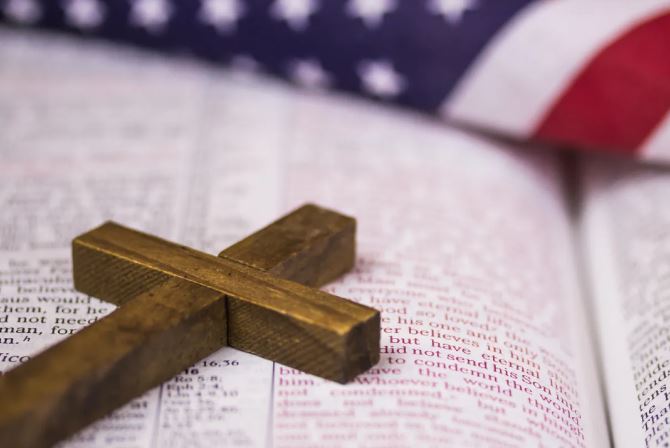
By Matt Spetalnick
MANAMA (Reuters) – The Trump administration prepared to launch its $50 billion economic formula for Israeli-Palestinian peace in Bahrain on Tuesday but the Palestinian leadership reiterated its disdain for the plan and Saudi Arabia, envisaged as one of its main bank-rollers, also indicated some reservations.

Bahraini armoured vehicle takes up position on bridge leading to Manama’s Four Seasons hotel for first day of U.S.-hosted “Peace to Prosperity” conference, in Manama, Bahrain, June 25, 2019. REUTERS/Matt Spetalnick
The two-day international meeting, led by Trump’s son-in-law and senior advisor Jared Kushner, has been billed as the first part of Washington’s broader political blueprint to resolve the Israeli-Palestinian conflict.
But the political details of the plan, which has been almost two years in the making, remain a secret. Neither the Israeli nor Palestinian governments will attend the curtain-raising event in Manama, which Lebanon and Iraq are staying away from.
Palestinian President Mahmoud Abbas, whose Palestinian Authority exercises limited self-rule in the Israeli-occupied West Bank, was scathing about its prospects of success.
“Money is important. The economy is important. But politics are more important. The political solution is more important.”
Washington will be hoping that attendees in Manama such as wealthy Gulf states will show a concrete interest in the plan, which expects donor nations and investors to contribute $50 billion to Palestinian territories, Jordan, Egypt and Lebanon.
Saudi Arabia – a close U.S. ally which shares a common foe with Israel in Iran – voiced support on Tuesday for “international efforts aimed at improving prosperity, investment and economic growth in the region”.
But Riyadh reiterated that any peace deal should be based on the Saudi-led Arab peace initiative that has been the Arab consensus on the necessary elements for a deal since 2002.
That plan calls for a Palestinian state drawn along borders which predate Israel’s capture of territory in the 1967 Middle East war, as well as a capital in East Jerusalem and refugees’ right of return – points rejected by Israel.
Kushner said the plan would not adhere to the Arab initiative. “It will be somewhere between the Arab Peace Initiative and between the Israeli position,” he told Al Jazeera TV in an interview to air on Tuesday.
Chief Palestinian negotiator Saeb Erekat said Kushner is “committed to the initiatives of Israel’s colonial settlement councils.”
Israeli Prime Minister Benjamin Netanyahu, a close Trump ally, said Israel was open to the plan. “We’ll hear the American proposition, hear it fairly and with openness,” he said on Sunday.

White House senior adviser Jared Kushner and Treasury Secretary Steven Mnuchin arrive at Manama’s Four Seasons hotel, the venue for the U.S.-hosted “Peace to Prosperity” conference, in Manama, Bahrain, June 25, 2019. REUTERS/Matt Spetalnick
Expectations for success are low. The Trump team concedes the economic plan – billed “Peace to Prosperity” – will be implemented only if a political solution to one of the world’s most intractable conflicts is reached.
Jordan and Egypt, the only Arab states to have reached peace with Israel, are sending deputy finance ministers. Kushner’s plan has hit a political nerve in Jordan, home to millions of citizens of Palestinian refugee origin.
Saudi Arabia and the United Arab Emirates want to move on from a Palestinian conflict they believe has held back the Arab world. Other Gulf states such as Kuwait, Qatar and Oman have not said who they are sending to the conference.
“If there is a one percent chance we do something good here, we should get together and try,” billionaire Mohamed Alabbar, one of Dubai’s most prominent businessmen, said after arriving at the venue in Manama and embracing two American rabbis.
POLITICAL PLAN?
It is not clear whether the Trump team plans to abandon the “two-state solution,” which involves creation of an independent Palestinian state living side by side with Israel.
The United Nations and most nations back the two-state solution and it has underpinned every peace plan for decades.
But Trump’s team has consistently refused to commit to it, keeping the political stage of the plan a secret.
U.N. Secretary-General Antonio Guterres urged the pursuit of “peace efforts to realize the vision of two States, Israel and Palestine, living side by side in peace and security”.
Any such solution would have to settle long-standing issues such as the status of Jerusalem, mutually agreed borders, satisfying Israel’s security concerns and Palestinian demands for statehood, and the fate of Israel’s settlements and military presence in territory in Palestinians want to build that state.
In Gaza, businesses closed doors in a general strike called by the ruling Islamist Hamas group and other factions.
In the West Bank on the outskirts of Ramallah, where a small crowd of protesters was dispersed by Israeli troops firing tear gas, Palestinian lawmaker Mustafa Barghouti said: “There can be no economic solution as a substitute for our freedom.”
The workshop is being held in Bahrain, home of the U.S. Navy’s Fifth Fleet, at a time of heightened tension between Tehran and Washington and its Gulf allies. Trump on Monday imposed sanctions on Iran’s Supreme Leader and other officials after Iran downed an U.S. drone last week.
Palestinian leaders have boycotted the conference, and are refusing to engage with the White House – accusing it of pro-Israel bias. Breaking with international convention, Trump in 2017 recognized disputed Jerusalem as Israel’s capital – a move that infuriated the Palestinians and other Arabs.
Seven Palestinian businessmen gathered in the lobby of the Four Seasons hotel, the conference venue. They estimated that 15 to 20 Palestinian business representatives would be present.
“The politicians will not bring us anywhere,” said conference attendee Shlomi Fogel, an Israeli entrepreneur. “We, the business people, should be able to show them there might be another way.”
(Reporting by Matt Spetalnick and Stephen Farrell; Additional reporting by Nidal al-Mughrabi in Gaza and Rami Ayyub in Ramallah; Writing by Ghaida Ghantous; Editing by Angus MacSwan)














